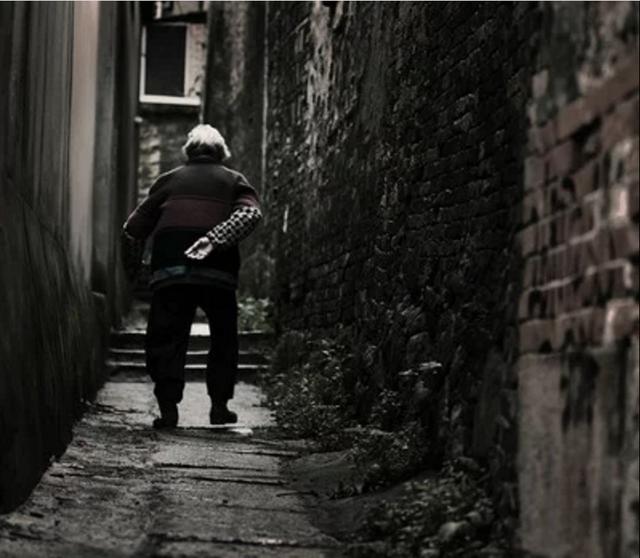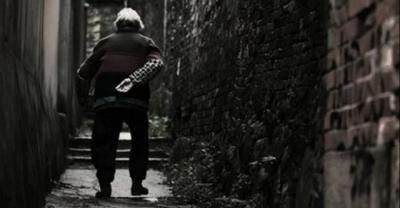Acacia beans planted in the bottom of my heart

Some memories can not be erased, there is a kind of love, deeply rooted in the bottom of our hearts.
I remember that after the Spring Festival three years ago, children who worked and went to school in other places set out one after another, and their mother's eyes were full of infinite nostalgia for farewell. She didn't want the children to leave, and she was afraid that it would be forever.
Just entering the twelfth lunar month a year ago, my mother got up every morning. After washing, she habitually opened the calendar, pinched her fingers and counted the days, waiting for the return of her grandchildren.
Looking at my mother's aging body and slow action, I scolded sadly, "Mom, waiting for them to come is your burden. I can't wait for you to go into the kitchen the last and next meal." Mother's face darkened at once. She glared at me with her slightly puffy and cloudy eyes. "think about it, what can I expect at my age?" I have nothing to say. Yes, my mother, who has worked hard all her life, is just looking forward to it from her head full of green hair to gray hair. Now her bloated body, dragging a crooked leg, is still busy cooking and doing housework every day. Even if she is unwell or ill, she is always silent as long as she can resist it. She is always afraid of delaying her children's work and affecting the lives of her children and grandchildren.
My mother lacked the love of her parents from an early age. Forced by life at that time, at the age of 8, she was sent to a wealthier relative to make a living. She felt the sadness of the world, tasted all the ups and downs of life, and was fed up with the unspeakable humiliation and pain. It was leftovers, beating, scolding and humiliation accompanied her to adulthood. It was New China, and the new society gave her the opportunity to get out of the feudal family. Coincidentally, she met my father, which changed the fate of her life.
At that time, my mother often mentioned those distant events, that pair of clear and bright eyes, will gush with sadness and sad tears. When it comes to people who have helped her in difficult times, they are always grateful and eloquent, telling us repeatedly that people should live a lifetime of kindness, gratitude, and kindness to others. She lived a hard life, never "afraid", "tired", "no money" in her vocabulary, and seldom heard sighs. Although the conditions at home were difficult at that time, the mother always tried her best to make us have enough to eat and warm, and pour a little bit of warmth into our children. Even in the most difficult moment, the confidence, firmness, patience and persistence in her eyes have always stayed in my heart and in the world of my life.
Mother has been married for more than 50 years and still retains her dialect, Liangzhou dialect. The dialect is sandwiched with folk dialect, which sounds simple, humorous, down-to-earth and cordial, such as "a man's rake, a woman's box", "a long stream of water, not worrying about food and clothing", "people are poor and there is no overnight feud between husband and wife", "exposing people without revealing their shortcomings, beating people without hurting their faces", "planning is not good for life" and so on. Some words are classic when pondered. No matter what things are mentioned or who they are talking about, there is always a humorous jingle in the mother's mouth, which makes everyone present applaud and praise. At this time, my mother's face was like a blooming flower, her eyes brimming with happiness and sweetness.
Later, although her mother lived in the city, her heart belonged to the countryside. She loves crops, loves land and likes to talk to rural people. The old men and women in the community gathered together, playing cards and playing mahjong, while their mother sat staring blankly in front of her, carelessly paying attention to the noisy scene. But as long as someone talked about the countryside, fields, or topics related to crops, her eyes suddenly lit up, and she began to talk a lot. She eloquently expressed her experience of farming and harvesting, and stated the hardships of farmers sowing in spring, autumn harvest and winter grinding.

One year, when there was little rain and snow in the spring, she said from time to time, "the field is full of dry soil. If the seeds go in and don't sprout, maybe the worms will eat them, and the farmers will have no hope." We all laughed at her, "what's the age? who do you worry about?" She is also always unconvinced, refuting with the facts, "in those days, food will always be eaten, and the crops will not be harvested. No matter how much money you have, there is nothing you can do without food." She wiped her fingers on her lips, then turned the calendar page by page and said to herself, "it rained until April 8 (lunar calendar), and pigs and dogs did not eat wheat bran dregs," as if immersed in a deep aftertaste.
There is more than affection in my mother's gentle eyes. I remember that in my hometown in the countryside, my mother's eyes could not only see through the good and evil of the people, but also measure the number of land and the number of seeds.
In the late 1960s, my father was a "capitalist" who was locked up in a bullpen, and our family could not protect ourselves, but my mother was not afraid of being dragged out to fight with her. She simply sympathized with those "land-rich anti-bad rightists" who were struggled by the "poor and lower-middle peasants". She always finds an excuse to send a bottle of water and a piece of bun to the old man standing on the ground wearing a "high hat". Secretly comfort those who have been punished, "there is always a time when it clears up, just grit your teeth and get through it. No matter how difficult it is, we have to live for our children."
At that time, there was no strong labor in our family, and our mother worked hard for a year, but still could not earn enough to share the food rations of the whole family. I remember once I went to the yard to share the food happily with my mother. The wheat in the yard was piled like a hill, and almost the whole family went out to pull the rickshaw and the donkey. The adults had woolen pockets under their armpits, and one person from each family lined up in first-come-first-served order. The captain supervised, kept and weighed, and the accountant called the name of the head of household according to the roster, pulling the abacus with one hand and loudly announcing the share of grain. A large pile of wheat was loaded into a sack with a shovel, weighed or carried on the back of a donkey or pulled away in a cart. When I finally called my mother's name, I heard a murmur from the crowd behind me, "overpayment."... "
The accountant quickly calculated that my family should get 176 jin of wheat, and he glanced at the captain around him. The stubble-faced captain, with his hands behind his back, stared gloomily at the scale. "have you paid the excess money yet?" Mother replied timidly, "just a few more days." she reached out her pocket to hold the food. "No!" When will the payment be paid and when will the food be divided? " In full view of the public, her mother's emaciated face suddenly turned white, and she bowed her head and quit the food-sharing team.
Later, no matter how poor the family was, my mother always decided that she must save money and pay the extra money first.
In those years, the family relied on my father's meagre salary, which could only support our daily life and our tuition expenses. Mother raises a pig every year. She gets up early and late in the day, shoveling grass and collecting dung to feed and feed the pig. My mother hopes that the pigs she feeds will be fat and strong, sell more money, pay off the rations, and will no longer be looked down upon. Later, my family left the hometown that made us nostalgic and sad, and went to the county with our father. Village people come to the county to do business, and often come to my house to have a rest. My mother is never bored, serving tea, pouring water, handing over cigarettes and cooking.
One day the captain, who had made things difficult for us countless times, stood in front of my house. We resented him from the bottom of our hearts, and we all looked gloomy. But his mother warmly let him into the house, offered his seat, handed over cigarettes, and asked about the health of the Murakami elders, the growth of the crops, and so on. Later, I heard him hesitate that he had come to borrow my brother's college entrance examination book.
My younger brother has been admitted to the university, and the pile of college entrance examination books has long been idle, but no one will give it to him. Mother went into the bedroom to get the book, but I just wouldn't let it. I jostled with my mother, "even if you don't give it, you won't burn it!" My mother forcibly snatched the book from my hand. "people who don't need it use it three times, and they have to walk three times if they don't walk. People can't be so short-sighted!"
Mother is like that regardless of personal honor or disgrace gains or losses, everything for the sake of others. No matter where she is, she will prop up a blue sky for her children and open up a wide land for her family.
The mother who looks forward to the stars, the moon and the adulthood of her children, after we all have our own families and our own lives, she is firmly trapped in the reinforced concrete building, lonely and cold, until she suddenly gets sick and leaves us in a hurry.
Now, the yearning for my mother is like an Acacia bean planted in the bottom of my heart, the roots are so deep, the leaves are so green, and the flowers are so luxuriant.
- Prev

Conservation and Management of Lily Planting
I. Temperature management Lily planting in the first two weeks, the temperature should be controlled at 4-13 degrees Celsius, after the temperature can be gradually increased to promote the growth of stem roots....
- Next

Implant teeth are not scary.
Many friends with missing teeth have a doubt: do you want to plant without teeth? If you don't care about it without a tooth, what's wrong with it? Dental implants, really.
Related
- Fuxing push coffee new agricultural production and marketing class: lack of small-scale processing plants
- Jujube rice field leisure farm deep ploughing Yilan for five years to create a space for organic food and play
- Nongyu Farm-A trial of organic papaya for brave women with advanced technology
- Four points for attention in the prevention and control of diseases and insect pests of edible fungi
- How to add nutrient solution to Edible Fungi
- Is there any good way to control edible fungus mites?
- Open Inoculation Technology of Edible Fungi
- Is there any clever way to use fertilizer for edible fungus in winter?
- What agents are used to kill the pathogens of edible fungi in the mushroom shed?
- Rapid drying of Edible Fungi

